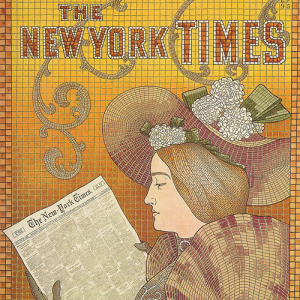U.S. Supreme Court Declines to Consider First Amendment Claims of NYT Reporter

The U.S. Supreme Court has declined to come to the aid of New York Times reporter James Risen. He is facing jail time after refusing to comply with a subpoena seeking the identity of a source used for his book, “State of War.” The government maintains that the source is Jeffrey Sterling, a former CIA official accused of illegally disclosing national defense information.
The case, Risen v. United States, No. 13-1009, highlights the tension between the government’s desire to prosecute those who leak confidential information and journalists’ rights to protect their sources. The U.S. Supreme Court last considered the so-called reporters’ privilege in Branzburg v. Hayes, which was decided in 1972.
Although the majority ultimately concluded that the First Amendment to the Constitution did not afford reporters any special protections when subpoenaed to testify before a grand jury, the majority of the federal courts recognize the existence of a limited reporters’ privilege. Although the tests vary, they are largely based on a concurrent opinion written by Justice Lewis F. Powell Jr.
As he explained:
[I]f the newsman is called upon to give information bearing only a remote and tenuous relationship to the subject of the investigation, or if he has some other reason to believe that his testimony implicates confidential source relationships without a legitimate need of law enforcement, he will have access to the court on a motion to quash, and an appropriate protective order may be entered. The asserted claim to privilege should be judged on its facts by the striking of a proper balance between freedom of the press and the obligation of all citizens to give relevant testimony with respect to criminal conduct. The balance of these vital constitutional and societal interests on a case-by-case basis accords with the tried and traditional way of adjudicating such questions.
Risen argued that the First Amendment grants journalists a qualified privilege to protect the confidentiality of their sources in the context of a criminal trial. He also maintained that a federal common law privilege should be recognized to provide protection to journalists who are subpoenaed to reveal the identity of their confidential sources in a federal criminal trial.
However, the Court of Appeals for the Fourth Circuit ruled that he must comply with the subpoena. It reasoned that the Supreme Court in Branzburg had “ ‘in no uncertain terms rejected the existence of ’ ” a “First Amendment testimonial privilege, absolute or qualified, that protects a reporter from being compelled to testify by the prosecution or the defense in criminal proceedings about criminal conduct that the reporter personally witnessed or participated in, absent a showing of bad faith, harassment, or other such non-legitimate motive, even though the reporter promised confidentiality to his source.”
Although the justices did not offer any explanation for declining to hear the case, they may be waiting for Congress to act. In recent years, lawmakers have considered several bills to create a national reporter shield law. The legislation seeks to strike a balance by providing legal protections to journalists engaged in newsgathering activities, while also including reasonable exceptions in national security cases in order to allow federal law enforcement to compel information that would mitigate terrorist threats.
Previous Articles
SCOTUS Decision in Bowe v. United States Is First of the 2026 Term
by DONALD SCARINCI on February 5, 2026
In Bowe v. United States, 607 U.S. ___ (2026), the U.S. Supreme Court held that Title 28 U.S.C. § ...
SCOTUS Rules State Can’t Immunize Parties from Federal Civil Liability
by DONALD SCARINCI on January 29, 2026
In John Doe v. Dynamic Physical Therapy, LLC, 607 U.S. ____ (2025) the U.S. Supreme Court held that...
Supreme Court to Address Racial Discrimination in Jury Selection
by DONALD SCARINCI onWhile the U.S. Supreme Court has concluded oral arguments for the year, it continues to add cases t...
The Amendments
-
Amendment1
- Establishment ClauseFree Exercise Clause
- Freedom of Speech
- Freedoms of Press
- Freedom of Assembly, and Petitition
-
Amendment2
- The Right to Bear Arms
-
Amendment4
- Unreasonable Searches and Seizures
-
Amendment5
- Due Process
- Eminent Domain
- Rights of Criminal Defendants
Preamble to the Bill of Rights
Congress of the United States begun and held at the City of New-York, on Wednesday the fourth of March, one thousand seven hundred and eighty nine.
THE Conventions of a number of the States, having at the time of their adopting the Constitution, expressed a desire, in order to prevent misconstruction or abuse of its powers, that further declaratory and restrictive clauses should be added: And as extending the ground of public confidence in the Government, will best ensure the beneficent ends of its institution.





